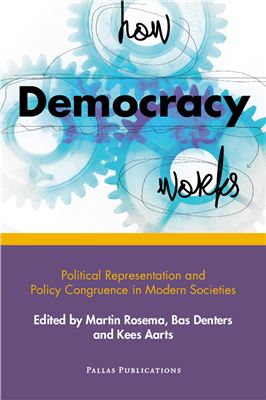In this book, a group of leading scholars analyzes the functioning
of mode democracies by focusing on two basic principles:
political representation and policy congruence. Drawing on recent
survey data from a variety of national and inteational research
projects, they demonstrate how political representation works and
mostly leads to a fair degree of policy congruence between citizens
and their representatives. They also present new insights on the
sources of satisfaction with democracy and the impact of the
economy on elections and political trust.
This book is published on the occasion of the retirement of Jacques Thomassen as distinguished professor of political science at the University of Twente. The contributors include Russell Dalton, Hans?Dieter Klingemann, Pippa Norris, Ola Listhaug, Hanne Marthe Narud, Jan van Deth, Peter Mair, Cees van der Eijk, Hermann Schmitt, S?ren Holmberg and Rudy Andeweg.
Martin Rosema, Bas Denters and Kees Aarts are affiliated with the Centre for the Study of Democracy (CSD) and the Institute for Innovation and Goveance Studies (IGS) at the University of Twente.
This book is published on the occasion of the retirement of Jacques Thomassen as distinguished professor of political science at the University of Twente. The contributors include Russell Dalton, Hans?Dieter Klingemann, Pippa Norris, Ola Listhaug, Hanne Marthe Narud, Jan van Deth, Peter Mair, Cees van der Eijk, Hermann Schmitt, S?ren Holmberg and Rudy Andeweg.
Martin Rosema, Bas Denters and Kees Aarts are affiliated with the Centre for the Study of Democracy (CSD) and the Institute for Innovation and Goveance Studies (IGS) at the University of Twente.

